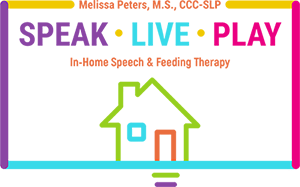Feeding Therapy: What You Should Know
While many kids can be picky eaters, some may struggle more than others. However, there are practical solutions to help improve their eating habits, such as feeding therapy. This specialized therapy, carried out by occupational or speech therapists, involves working with babies or children. The main objective is to establish standard eating patterns and behaviors that foster enjoyable and stress-free mealtimes. So, if you’re looking for ways to address your child’s picky eating, consider exploring the benefits of feeding therapy—it can make a real difference!
Who Can Benefit from Feeding Therapy?
Research suggests that approximately 20% of children experience eating difficulties before the age of seven. However, here’s some reassuring news – about half of these children naturally overcome these challenges. But for those who continue to struggle, it’s essential to be aware that mealtimes can become stressful and may lead to anxiety. So, let’s delve into the variations of these warning signs across different age groups and gain a better understanding. Stay informed and prioritize your child’s well-being! Discover the benefits of feeding therapy and how it can help your child overcome these challenges.
For babies up to 6 months:
– Signs to watch out for during feeding include coughing or choking, which can indicate potential respiratory or swallowing issues. Pay attention to these symptoms to ensure the well-being and safety of the individual.- Coordination issues with eating and breathing
– Frequent episodes of projectile vomiting can be pretty distressing. It is characterized by forceful expulsion of stomach contents through the mouth, often traveling a significant distance. Examples of factors that can contribute to this condition are gastrointestinal disorders, food poisoning, or a strong reaction to certain medications. It’s essential to seek medical attention to identify the exact cause and receive proper treatment for relief.
– Feedings extending beyond half an hour can indicate a need for additional attention or adjustment in the feeding routine. It is essential to closely monitor feeding patterns and understand the factors contributing to longer feedings to ensure the well-being and optimal nutrition of the individual.
For 6 to 12 months:
– Difficulty trying baby food or purées
– Refusal to open their mouth or turn away during feeding
– Lack of interest in trying finger foods
– Frequent coughing or gagging during meals
For children over one year:
– Very restricted diet
– Avoiding certain food groups or textures
– Coughing or choking while drinking
– Inability to drink from a straw
– Upset when presented with new foods
– Low weight or weight loss due to refusal to eat
Some autistic children may find feeding challenging due to sensory overload, making feeding therapy beneficial in such cases.
How Does Feeding Therapy Work?
If you suspect your child has feeding issues, start with a pediatrician assessment. If necessary, a feeding therapy specialist, usually an occupational or speech therapist, will work with your child once or twice a week. Sessions typically last an hour, aiming to determine if the issues are sensory, motor, or both.
Therapists address issues by:
– Introducing new foods, especially various textures
– Improving coordination for swallowing and eating
– Enhancing oral motor skills
– Encouraging tasting of unconventional foods
Intensive therapy may be necessary for very young babies to ensure proper nutrition, using technology and techniques in multiple daily sessions.
Feeding Therapy Techniques
Therapists use different methods to help children overcome challenges. One effective technique is the SOS (sequential-oral-sensory) Approach. It aims to make trying new foods a positive and stress-free experience so kids can enjoy eating more. The Beckman Oral Motor Approach is another method that focuses on improving mouth movements and skills. It helps with things like talking and chewing. Lastly, there’s the Behavioral Approach. This one rewards kids with small prizes for achieving their goals. It helps them stay motivated and feel proud of their accomplishments. Therapists use these strategies to help kids develop and grow in all areas.
How Can I Help My Child at Home?
While professional therapy is crucial, you can support your child at home by:
– Establishing a mealtime routine, free from distractions
– Making mealtimes fun with diverse textures and colors
– Encouraging your child to help with meal preparation, fostering sensory exploration
– Eating together as a family when possible, promoting positive associations with food.
Need Help?
If you find yourself in need of professional assistance, rest assured that you can always rely on us! We take pride in connecting you with our team of highly skilled and experienced therapists who are dedicated to providing you with the support you deserve. To schedule a session and take the first step towards better well-being, click here. We’re here to help you navigate life’s challenges and empower you on your journey to a happier and healthier you.





